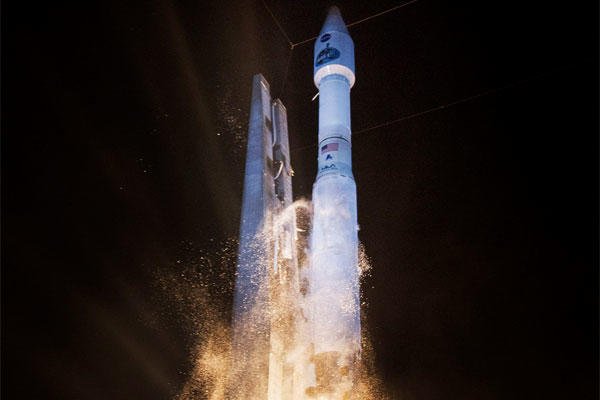Key Republican lawmakers in Congress will introduce legislation repealing a provision that authorizes the U.S. to buy an unlimited number of Russian rocket engines to support U.S. space launches.
Sen. John McCain of Arizona, chairman of the Senate Armed Services Committee, announced the plan Wednesday just before the start of a committee hearing where he grilled Air Force Secretary Deborah James over the service's use of Russian RD-180 engines. McCain also criticized payments to an American company that he said doesn't even compete for the business.
The senator said he preferred to ban the use of RD-180s but reluctantly agreed to a compromise allowing for the purchase of nine of the propulsion systems in the 2016 National Defense Authorization Act, which sets policy and spending goals for the fiscal year that began Oct. 1. But he said a provision was included in the legislation "in secret with no debate" that allows for any number of purchases.
"It is morally outrageous and strategically foolish to ask American taxpayers to subsidize Russia's military industrial base when Vladimir Putin occupies Crimea and destabilizes Ukraine, menaces our NATO allies in Europe, violates the 1987 Intermediate Range Nuclear Forces Treaty, sends weapons to Iran, and bombs U.S.-backed forces in Syria to prop-up the murderous regime of Bashar Assad," McCain said.
A McCain spokeswoman said the Senator's proposed legislation would rescind the added language and go back to the previously agreed to limit of nine engines. His and McCarthy's bills are designed to ensure the U.S doesn't depend on Russia for access to space.
During the hearing McCain, told James and Frank Kendall III, the Pentagon's acquisition chief, that his previous efforts to end U.S. dependence on Russia has been thwarted by officials from the Air Force and a U.S. company called United Launch Alliance LLC, a joint venture of Lockheed Martin Corp. and Boeing Co.
"At every turn, the Air Force and ULA have replied with stalling tactics, stale arguments, and suspect assertions" that U.S. space needs cannot be met without the RD-180s, he said.
James defended U.S. use of the RD-180s as important to ensuring the U.S. is able to launch national security payload into space according to its own needs and timetables. But she agreed with McCain that Russia's behavior in Crimea has altered the situation.
"We are all in agreement with the need to end the use of the RD-180 with minimal impacts to national security as soon as possible," she said.
James also conceded that United Launch Alliance's failure to bid on a recent GPS satellite launch disappointed her. Under contract, ULA gets about $800 million per year from the Air Force to maintain its launch capability and to give national security launches priority.
McCain blasted the arrangement, saying the company gets $800 million a year for "doing nothing" if it won't competitively bid on launches.
According to James, when the commercial space-launch industry failed to grow as expected in the 1990s, it turned to the Lockheed Martin and Boeing to guarantee access to space for through a program called Evolved Expendable Launch Vehicle, or EELV, which has historically relied on Delta and Atlas rockets built by ULA.
A decade ago, after the formation of the joint venture, the Air Force began awarding ULA multi-million-dollar contracts to retain launch capability for national security needs and give U.S. national security launches priority in the schedule.
ULA met these goals by stabilizing its engineering workforce, supporting launch infrastructure maintenance, funding costs associated with the government's independent mission assurance process, and sustaining launch site operations, she said.
But James said the fact that ULA opted not to bid on the GPS launch, coupled with U.S. taxpayer dollars funding some of ULA's sustainment and operational costs, has prompted her to direct Air Force lawyers "to review what could be done about this."
She added, "They are looking at options, including early termination of the ELC arrangement and how early termination could possibly impact the pricing of the remaining block buy launches."
-- Bryant Jordan can be reached at bryant.jordan@military.com. Follow him on Twitter at @bryantjordan.




























